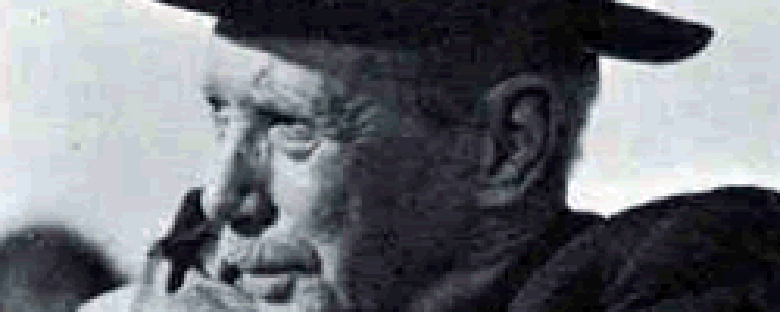Reviews
Vittorio De Sica
Italy, 1952
Credits
Review by Rumsey Taylor
Posted on 11 July 2004
Source The Criterion Collection DVD
In dress and etiquette, Umberto Ferrari is routinely kempt and polite, a man of apparent wealth. He has a gold pocket watch he displays frequently to his friends for admiration; for him and other men of this indigent stature it is a final measure of worth.
His sole companion is the exceptionally trained Flike, “a mutt with intelligent eyes.” At a luncheon shelter, in one of many gestures that issues the aged man’s compassion, Umberto secretly donates his meal to his dog and is shortly threatened with expulsion.
Umberto D. is a film laden with sentiment, containing many scenes as sympathetic as the one aforementioned. This is a source of criticism as this theme of despair and sympathy is unvaried throughout the film. It is constructed of episodes that occur over the course of a few days. Excised are none of the more mundane actions in this primarily inactive scenario: Umberto’s many disturbances during his restless sleep, his uninteresting, ordinary correspondence with an attractive neighbor. As with The Bicycle Thief, Vittorio De Sica’s film is concretely Neorealist. Though the tragedy and drama that distinguish his finest film are, although present here, comparatively inconsequential.
Umberto is a thematic cousin to Kurosawa’s Ikiru. Both are old men who are led to question their purpose as a result of their age. Whereas Ikiru seeks redemption, Umberto seeks subsistence, opting to keep Flike fed and his back rent paid rather than issuing any radical change that would potentially improve his existence. The film observes his strife with strict patience, and because his interests are unwavering (although he clearly considers suicide on two occasions, the welfare of his dog prevents the act) there is little commentary here. This is converse to The Bicycle Thief: Antonio is inhibited by his diminutive social rank. His final attempt to aid his family, in what I would say is one of the most tragic scenes in film, is thwarted; his poverty is secured and unjustified by his admirable, humanistic intentions. Umberto lacks such admirable, reactionary impulses. His existence is terminally riskless and mundane, however good-natured.
The film’s scoring and photography relay its trademark pathos in bulk. The melancholy score is frequently reprised, underlining even Umberto’s comparatively minor tragedies. In a later scene, he (presumably at the brink of another restless night) is framed within a hole in his bedroom wall — an exceedingly manipulative gesture, and unnecessary as the film’s sentiment is already established. The film burdens the viewer with maudlin propaganda.
Umberto D. is a film of constant desolation, a stalwart example of Neorealist cinema, and a depressive film whose recommendation depends on the benefit of the emotions it successfully elicits.
We don’t do comments anymore, but you may contact us here or find us on Twitter or Facebook.



